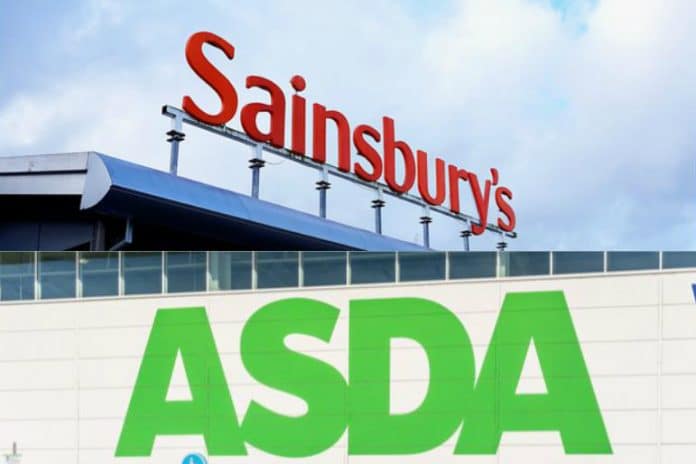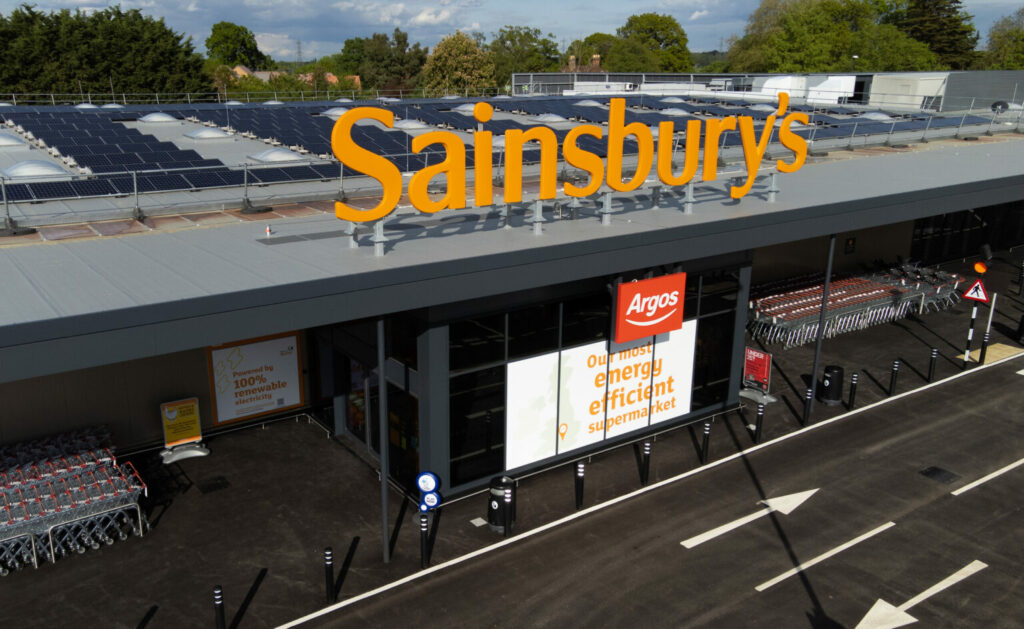The proposed Sainsbury’s and Asda tie-up would the one of the biggest mergers to go down in UK retail history – should the Competitions and Markets Authority approve it.
The proposed merger, estimated to be valued at around £12 billion, was first announced at the end of April last year. However, since then there have been endless headlines and various groups have come forward to express their concerns about the deal – including rivals like Waitrose and Lidl.
Nonetheless, the CMA has been undergoing an extensive probe into the proposal. But just recently, the peak competition regulator announced that its final verdict would be delayed by almost two months to April 30.
Should it be approved, Sainsbury’s is likely to take the lead in the new retail entity, despite being valued at £5.9 billion compared to Asda’s £7.3 billion. Chief executive Mike Coupe would drive the business, while Asda’s US-based owner Walmart will acquire a 42 per cent stake in the combined business.
It is uncertain whether the CMA is likely to give it the go ahead or stop the deal altogether. It has the power to stop it going ahead if its probe concludes that the merger would represent “a potential reduction in competition” in the UK’s grocery market. On the other hand, it’s possible that CMA could impose specific conditions in order to agree to the deal.
Should Sainsbury’s and Asda merge, it would mean the new supermarket group would hold an estimated 31.5 per cent of the UK market, effectively toppling Tesco’s longstanding reign as the UK’s largest grocer by market share.
“The key question is what the merger or the functions of Asda and Sainsbury’s means in essence.”
So what are the legal implications of the deal? The Retail Gazette spoke to John Schmidt, an expert in competition law and partner at law firm Arnold & Porter, to find out what both Sainsbury’s and Asda would have to consider.
“The key question is what the merger or the functions of Asda and Sainsbury’s means in essence and whether the prices on their products increase either nationally or locally, of it puts positive or negative pricing pressure on the remaining Big 4 retailers,” Schmidt said.
“Relevant to that is the question of whether the market comprises only the Big 4 supermarket chains or whether there is significant competitive pressure from the discounters, particularly Aldi and Lidl but also others.
“In the past, the CMA hasn’t really approached them as full competitors.”
Schmidt also said the CMA was investigating the how the proposed merger could affect small business suppliers.
“They’re looking at what the effect will be in the retail space, what the effect will be online, which is obviously a different offering to the new entrance, and the third element is what that does to the supply chain,” he said.
It’s been widely reported that suppliers could be worse off due to the Sainsbury’s and Asda’s pledge to lower the prices of their everyday products once the merger is done. Product prices are expected to fall by 10 per cent on average for the new retail entity.
“If you’re a supplier, obviously that’s a negative because the more purchasing power and lower prices for the supplier means lower margins for them, but also it means that they have the potential of having more sales and more revenue,” Schmidt told the Retail Gazette.
“The merging parties’ big point is that the supply chains similar to the Tesco-Booker argument should mean that prices go down for the consumer, the question is whether there are other negative effects up in the supply chain that will counter balance.
“There were issues around supermarket pricing but they’ve never really decided that there was enough evidence to do anything about the perception that the supermarkets were using their buying power too strongly to take advantage of suppliers small or large.
“In the past we got competition commissioners asking for evidence for suppliers to come forward, they’ve never received sufficient evidence to help them build a case.
“The question here is that whether there will be more evidence, my guess is that it’s probably less likely that something fundamentally different will emerge from that analysis, but you don’t know.”
“The question is whether there are other negative effects up in the supply chain that will counter balance.”
Asda has been for a while the poorest performer of the Big 4 supermarket retailers, hit hardest by the rise of German discount giants Aldi and Lidl, although in recent months it has returned to good financial health. Nonetheless, it was in need of a new approach to revitalise its business.
Meanwhile, Sainsbury’s was looking for ways to strengthen its position in the market following Tesco’s takeover of Booker, the UK’s largest grocery wholesaler and convenience operator, which significantly increased the grocery giant’s buying power.
It is understood that Sainsbury’s and Asda would remain as own-brands and continue to trade as such, but details are uncertain. However, it is evident their goal is is to form a company more powerful than current market leader Tesco.
The CMA said it would look at how the deal could drive up prices and affect quality in the groceries, and the likely argument to be put forward is that the merger would see more competitive prices brought into the mix as it continues its battle with Aldi, Lidl and Amazon.
“The big part of the story is obviously the rise of online sales and the question is whether the market will then continue to give opportunities to potential disruptors that have nothing to do with the traditional high street, Schmidt told Retail Gazette.
“We see that in industries if that happens obviously, there is potential for consumers to benefit, for suppliers to have additional sources to get to the market and consumers.
“But the question is whether we’re there yet, whether Amazon will do here what they’ve done in the States, but all of that’s ongoing, but I don’t think at the moment it is that clear.”
The UK’s future trading agreement with the EU once Brexit officially occurs on March 29 could also affect the proposed merger. However, Schmidt said there was a strong amount of uncertainy because it depended on the actual suppliers and cross-border purchases.
“I’m not sure Brexit will have an impact on the deal as such, it may well have an impact on how you source your products and whether you can get access to the products on the same terms or on different terms, more expensive terms, more delayed to get the products, that will apply to the two on their own or combined,” he said.
“Each company will have their own matrix of supplies but I wouldn’t say its different, its just that the same issues apply to the two together, and if its bigger then I think it will be a big problem for each of them individually, it will be a problem for them combined.”
Click here to sign up to Retail Gazette‘s free daily email newsletter

















